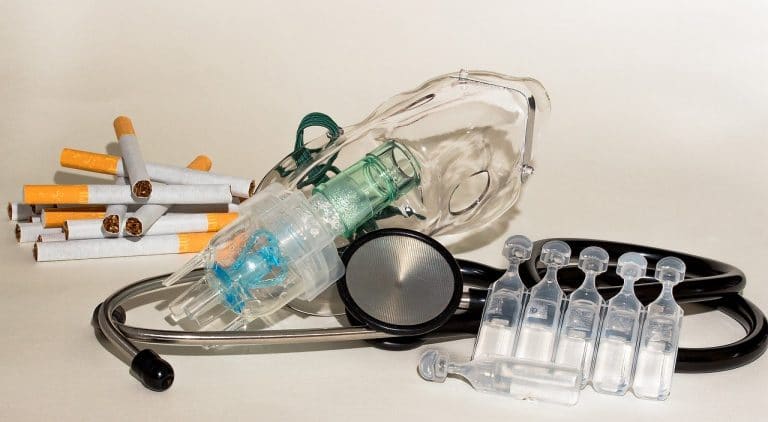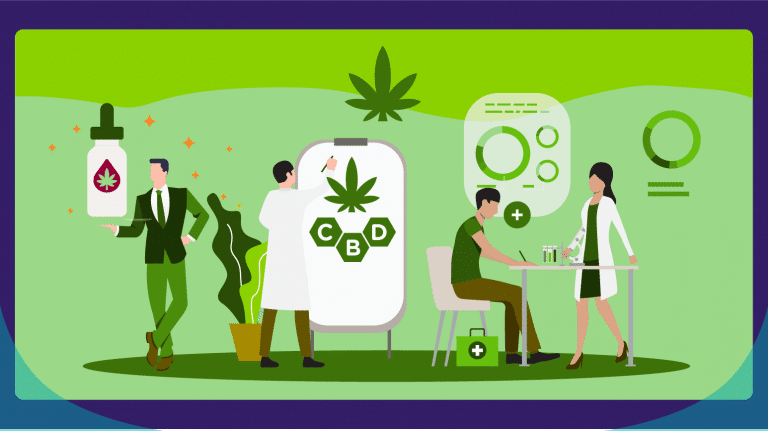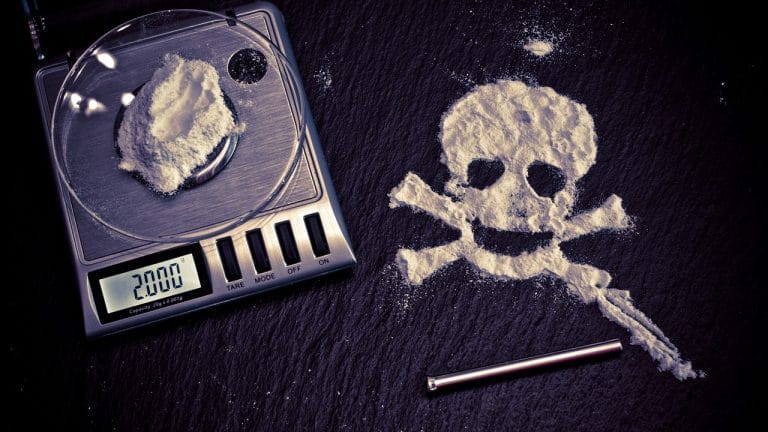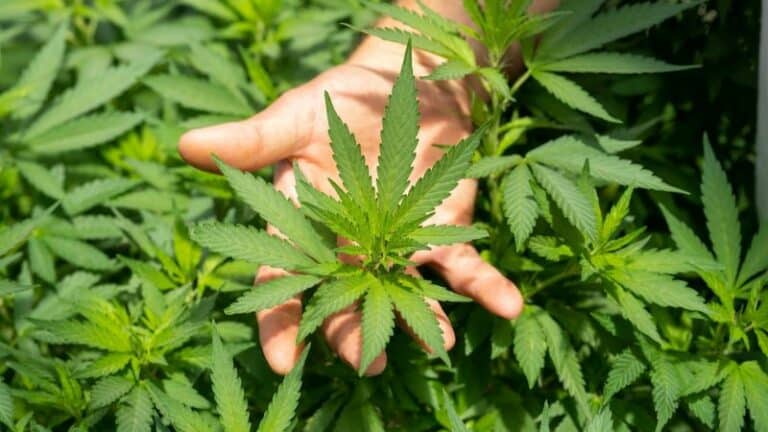What Is THC and Why We Want More: Uses & Competitors

What is THC, and why is it so loved by some? The first association is, naturally, the desired “high” effect. You can’t get high from the cannabis plant unless it has the proper quantity of THC, and it’s a fact.
Let’s get to know THC a bit better and see for ourselves if it really is the “bad boy” as it is represented to be: the formula, the effects, and how it compares to other cannabinoids (especially Deltas).
THC Definition
THC (tetrahydrocannabinol) is the main psychoactive constituent of cannabis and one of over 100 cannabinoids in the cannabis plant. It is produced in the plant’s resins, and its mission is to protect the plant from predators, environmental stress, and UV rays.
However, for humans, it is vital to know that THC is a kind of cannabinoid that has the power to naturally connect with cannabinoid receptors inside our own bodies and provoke a specific response.
Our own cannabinoid system spreads through our whole body (brain, glands, organs, immunity cells), and it is called “a bridge between the body and mind.”
When tetrahydrocannabinol attaches to these receptors, it affects our mood, thinking, memory, enjoyment, coordination, and perception.
THC Chemical Formula
The first person to isolate and discover THC is an Israeli organic chemist, Raphael Mechoulam, aka the father of marijuana. Unveiling its chemical formula (C21H30O2) took lots of research, one trip to the police station, and 11 pounds of hashish.
Interestingly enough, even though CBD and THC are all the rage now, they were not nearly as intriguing to the public before the 60s.
How THC Impacts Our Bodies
If you were to look at the chemical structure of (–)-trans-delta 9-tetrahydrocannabinol, aka THC, you would notice it is very similar to a brain chemical called anandamide.
This similarity makes our brain recognize THC as something native and familiar and allows it to bind to the cannabinoid receptors and activate them.
What does THC do then? Well, something quite interesting!
It connects with G-protein-coupled receptors, and in this way, to CB1 receptors, too. CB1 receptors are found all over our body, which explains the profound effect THC has on us.
Basically, there are just so many “switches” all over our body that THC turns on and changes our behavior, motoric skills, and information processing.
It may even cause acute psychosis, though the THC molecule is more associated with activating the brain’s reward system, which releases dopamine. The same response can also be triggered by sex and eating (marijuana and sex have a special relationship).
Benefits of Using THC
According to scientific studies and anecdotal evidence, THC benefits abound. THC can help with various health issues and symptoms, such as:
- Multiple sclerosis symptoms (spasticity, bladder dysfunction, painful spasms)
- Neurodegenerative disorders (Huntington’s disease, Parkinson’s disease, Alzheimer’s disease)
- Other neurological disorders (Tourette syndrome, Cervical dystonia)
It can also:
- Reduce pain
- Ease nausea and vomiting
- Help with insomnia
- Increase appetite
It is difficult to name all of its effects as new research with new evidence of its usefulness is published every so often.
THC Side Effects
THC is not without side effects. The most common are:
- Paranoia
- Anxiety
- Tachycardia
- Memory loss
- Dry mouth
- Red eyes
- Sleepiness.
Keep in mind that THC has a potential for toxicity. According to preliminary research, high doses of THC can cause DNA damage (chromothripsis).
On top of that, the individual experience will depend on a group of factors, from the person’s overall health and the levels of THC and CBD they are taking to the frequency of usage.
Different Types of THC Products (and Consumption)
Now that you know what THC is, do you know how to use it?
There are many THC-infused products on the market. They are mostly advertised as cannabis or marijuana oil. You can find also find hemp products that contain only 0.3% THC. However, they won’t make you high.
To get that specific feeling of euphoria, you need to use a product that contains over 0.3% THC.
That said, here are the most common forms of THC you can try.
RSO Oil
RSO or Rick Simpson oil is a type of cannabis oil that has a high concentration of THC. Usually, the concentration varies from 20% up to an amazing 90%. It is made in the same way as CBD oil, except for the fact you will get a highly potent and psychoactive content.
It’s mostly used sublingually, but basically, it can also be used topically, in capsule form, or with a suppository.
THC Liquid
What is THC liquid or THC vape juice? That’s the liquid you can use for vape pens. It is also known by other names, such as THC e-liquid or e-juice. This is a concentrate or tincture that usuaally contains highly concentrated THC and little CBD. You can feel its effects almost instantly due to the consumption method.
THC Gummies & Other Edibles
THC gummies are simply gummies infused with THC and are not to be confused with CBD gummy treats (or should we say, vice versa).
As with other edibles (butter, cookies, muffins…), it’s vital to be patient. Their effects can kick in up to two hours, so it’s best not to overeat. Once the high starts, there’s no going back, and it will be a potent and long-lasting one since it will be metabolized by your liver.
THC Tincture
What is THC tincture? THC tincture is an alcohol-based cannabis extract similar to oil. You can also take it sublingually or add it to your favorite dish. Depending on how you take it, you’ll feel the effects instantly or later on.
Swallowing the oil (as opposed to the sublingual method) is similar to consuming THC edibles, but the effect is not as long-lasting.
THC Pills and Capsules
What is a THC pill? This is an ingestible capsule that can contain synthetic cannabinoids or botanical extracts of the cannabis plant.
Pills are preferred by physicians and patients alike because their dosage is easily adjustable, and they are convenient (discreet) to take. The common THC microdoses are 2 mg, 10 mg, 25 mg, or even 100 mg per pill. Keep in mind, though, the pills can be a tad pricey.
THC Concentrates
THC concentrates contain up to 90% of THC and are very popular but also easy to manipulate and abuse, so it has become a health hazard in some areas. They go by different names and can have many forms: THC wax, THC oil, shatter, crumble, hash oil, water hash, and so on.
What is THC wax? It’s a wax-like substance with about 90% of THC. THC wax can be eaten, smoked, or applied to lips, gums, or even eyelids.
THC Topicals
As opposed to the rest of the products on our list, THC topical will not get you high, despite the THC content. Creams and lotions are skin-absorbed, so you will only feel the health benefits without the high. THC is anti-bacterial, analgesic, anti-oxidant, and antispasmodic.
Marijuana Flowers
Finally, the most obvious way of getting high from THC is to buy and light a joint. Still, bear in mind that alternatives, such as using a vape pen, are less harmful to your lungs.
THC vs Other Popular Cannabinoids
Now, let’s take a look at the similarities and differences between THC and CBD, as well as THCA and the talk of the town, Delta 8 THC.
What Is the Difference Between THC and CBD?
THC is well-known for its psychoactive impact, whereas CBD does not possess this quality. Furthermore, studies show that CBD inhibits THC’s power to give us a high effect. On the other hand, it appears that by doing so, it allows for THC to exhibit its medical properties better.
The differences in the THC vs CBD showdown are not just about CBD being the “good guy.” If it weren’t for THC, the powers of CBD would not be as strong.
This is why it is usually much better to shop for CBD oil that has THC in it (full spectrum CBD oil), for example, because together they produce the entourage effect.
Curiously enough, both THC and CBD have the same molecular structure: 2 oxygen atoms, 21 carbon atoms, and 30 hydrogen atoms. However, their arrangement is different, which ultimately makes them very distinct.
What Is the Difference Between THC and THCA?
THCA, or tetrahydrocannabinolic acid (2-COOH-THC), is a compound found in fresh, undried cannabis. THCA is a precursor of THC that is progressively decarboxylated to THC through the process of drying and heating (smoking or cooking).
The cannabis industry has made space for lots of research on producing the strongest concentrates, and THCA is precisely that. THCA, when extracted, takes the form of white crystals.
What is THCA vs THC difference? THCA is a non-psychotropic cannabinoid, while THC is an active, psychotropic cannabinoid.
Still, when you heat it, it becomes something else!
Smoking THCA crystalline is perhaps the most powerful way of consuming THC. In case you really wish to experience the most overwhelming high of your life, this is what you should try out. What you get by burning meth-like crystals is pure THC. In contact with fire, THCA molecules endure a reaction that gives us THC free of any terpenes or CBD.
Because of that, the final product has no aroma or taste. Some companies even go as far as to produce 99.9% THC, but the average concentration is around 80%.
What is Delta 9 THC in these crystals going to do if we eat them instead of burning them? Well, it’s not going to get us one bit high, that’s for sure. The crystals are THCA, which is an entirely non-psychoactive cannabinoid.
To transform THCA into THC, you always have to expose it to a very strong heat source. Otherwise, THCA (or THCa, as it is often spelled) is said to help with inflammation, anxiety, pain, and neuroprotection.
How Are Delta 9 THC and Delta 8 THC Different?
The THC meaning changes with just one figure. Namely, Delta 8 is Delta 9’s isomer that has orexigenic, anxiolytic, analgesic, antiemetic, and neuroprotective effects. While having similar pharmacodynamic and pharmacokinetic profiles, they offer different physical and chemical properties.
In short:
- Delta 9 is more psychoactive than Delta 8
- Delta 9 produces stronger side effects (like paranoid delusions, mental fog, and impaired motor skills)
- The effects of Delta 8 are less rapid. It takes more time to feel its impact
- Both can be smoked, vaped, and consumed as edibles.
What is D8 THC in the eyes of the law? Unlike Delta 9, Delta 8 is technically legal on a federal level. However, due to its psychoactive properties, it is illegal at the state level. In fact, 12 states have banned it so far.
In terms of usage, since Delta 8 has a lower potency than Delta 9, you might have to take a higher dosage to reach that high feeling. However, start slow (take 5–10 mg) and increase the dosage if needed.
THC’s Legal Status
Is THC legal? There is no straightforward answer to this question. So far, 38 states and the District of Columbia, legalized marijuana use, but only under specific guidelines and restrictions. Overall, THC is legal to use if the product is hemp-derived and it doesn’t exceed the 0.3% threshold. We also have a complicated status with the Delta 8 THC. While technically being legal on a federal level, it’s still illegal at the state level.
Is THC oil legal if infused into medication? The FDA approved one cannabis-derived and three cannabis-related drug products that are legal to obtain with a doctor’s prescription. These drugs are Epidiolex, Marinol, Syndros, and Cesamet. The mentioned drugs contain dronabinol and nabilone, a synthetic Delta-9-THC.
At the same time, in 2010, the UK approved the use of Nabiximols, a specific cannabis extract that has THC as its active ingredient. Nabiximols, or Sativex, is used as a mouth spray for the treatment of the symptoms of multiple sclerosis (neuropathic pain, spasticity, overactive bladder).
Sativex is also available in Canada (since 2005) and Ukraine (since 2021) as a prescription drug.
Final Words
The “bad boy” THC is one of the many cannabinoids in the cannabis plant that produces psychoactive effects.
Besides making us feel “high,” THC also provides numerous health benefits, especially when joined with its “brother in arms,” CBD. Together they create the entourage effect (compounds act synergistically).
While research has brought in great uses of other Delta THC variants, it’s a fact that Delta 9 THC is still irreplaceable!
FAQs
What is the difference between CBD and THC?
The main difference between the two is their effect and the different arrangement of molecules (hence the difference in impact). While THC provides psychoactive effects, CBD won’t make you feel high. Then, there is the question of legality — THC usage is not approved in all states.
What is considered high THC?
If a strain has 18% to 20% THC, that is taken as a high percentage. The highest THC in a strain amounts to about 30%. At the same time, anything over 0.3% is considered too high if you think about federal law.
What is 10mg of THC equivalent to smoking and eating?
10mg of THC equals one gummy bear, one average. As for smoking, it takes some calculations. One average joint contains 1/3 of a gram of cannabis, i.e., about 40mg of THC. So, to inhale 12.5mg of THC, you would have to smoke a 1/4 gram join
What is shatter THC concentrate?
This is a caramel-like type of THC concentrate that is not so easy to smoke compared to others. THC shatter typically has up to 80% THC. It has to be heated before you can smoke it.
Is synthetic THC legal?
Yes, it is, in a couple of medicines. Drugs containing synthetic THC (called dronabinol) are Epidiolex, Marinol, Syndros, and Cesamet. They are used for treating nausea and vomiting, mostly in cancer patients.
What's better for pain, CBD or THC?
CBD is a better option for neutralizing local pain. At the same time, THC works better for overall pain since it has a greater effect on the brain and the way it perceives pain.
The main problem with both cannabinoids is their legal status. As mentioned before, only hemp-derived products that contain less than 0.3% THC are legal on a federal level.
Suppose you want to use THC and CBD products that have a higher potency. In that case, you will have to opt for an MMJ card (plus a doctor’s prescription), and not all states have a medicinal marijuana program.
What is THC good for regarding types of pain? It is applied widely, from minor headaches and sore muscles to cancer-related pains.






Great article! But stay away from synthetic THC – deaths have been reported from it, but none from naturally occurring THC.
Thanks, Luke! Hmm, maybe we’ll do an article about that, too.